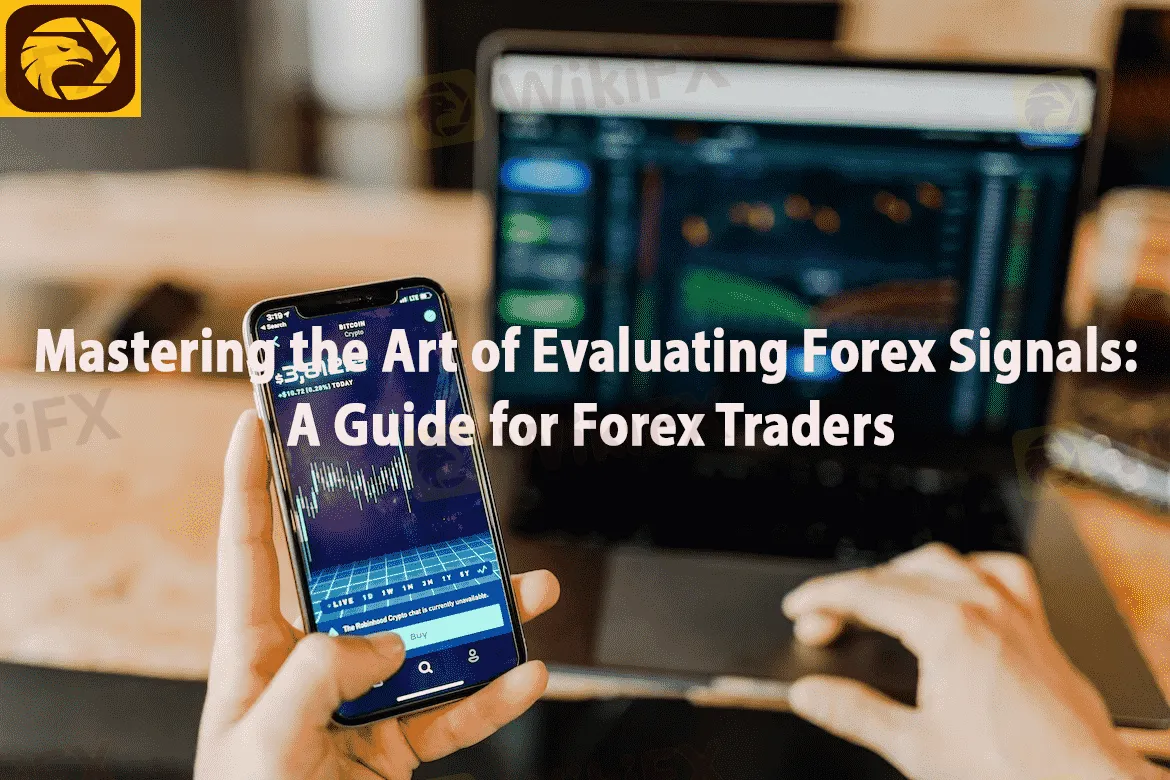简体中文
繁體中文
English
Pусский
日本語
ภาษาไทย
Tiếng Việt
Bahasa Indonesia
Español
हिन्दी
Filippiiniläinen
Français
Deutsch
Português
Türkçe
한국어
العربية
Mastering the Art of Evaluating Forex Signals: A Guide for Forex Traders
Abstract:Forex trading is a dynamic and complex market that requires traders to make informed decisions based on various factors.

One such factor is forex signals, which are indicators or notifications that suggest potential trading opportunities. However, blindly following signals can be risky, as not all signals are accurate or suitable for every trader. To navigate the forex market successfully, traders must develop the skill of evaluating forex signals effectively. In this article, we will discuss essential considerations for evaluating forex signals and making informed trading decisions.
Source Credibility:The first step in evaluating forex signals is to assess the credibility of the source providing the signals. It is crucial to choose reputable and experienced signal providers who have a proven track record of accuracy and reliability. Look for providers who offer transparent information about their trading strategies, historical performance, and risk management techniques. Research online reviews and seek recommendations from fellow traders to ensure the signal provider has a positive reputation.
Historical Performance Analysis:Analyzing the historical performance of forex signals is vital to determine their effectiveness. Examine past signals and their outcomes, including win rates, profit targets, and stop-loss levels. Consistency is key; a reliable signal provider should display a consistent track record of profitable trades over a significant period. Be wary of providers who cherry-pick their best trades or manipulate performance data. Verify the accuracy of performance claims through third-party platforms or independent audit services.
Risk Management Parameters:Forex trading involves inherent risks, and evaluating forex signals should include an assessment of the risk management parameters employed by the signal provider. A reputable provider will clearly define risk parameters, such as the recommended position size, stop-loss levels, and risk-to-reward ratios. Adequate risk management is crucial to protect your trading capital and avoid excessive losses. Evaluate whether the signal provider's risk management aligns with your own risk tolerance and trading strategy.
Compatibility with Trading Strategy:Every trader has a unique trading style and strategy, and it is essential to evaluate forex signals in the context of your own approach. Consider whether the signals align with your trading timeframe, whether you are a scalper, day trader, or swing trader. Assess if the signals complement your preferred currency pairs and technical indicators. A good signal should reinforce your existing analysis and enhance your trading decisions, rather than contradicting or confusing your strategy.
Fundamental and Technical Analysis:While forex signals may provide valuable insights, it is crucial to understand the underlying market conditions and conduct your own analysis. Evaluate the fundamental and technical factors that support the signal's rationale. Assess economic indicators, news events, market sentiment, and technical chart patterns to validate the signal's potential accuracy. Combining signals with your own analysis can improve the overall reliability of your trading decisions.
Demo Testing and Validation:Before implementing forex signals into live trading, consider testing them on a demo account to validate their efficacy. Demo testing allows you to evaluate the signals' performance in real-time market conditions without risking real capital. Observe how the signals perform over a reasonable period, assessing their accuracy and compatibility with your trading style. Adjust your risk management parameters based on the demo results and only proceed to live trading when you have confidence in the signals' effectiveness.
Conclusion:
Evaluating forex signals is a critical skill for forex traders to make informed trading decisions. By considering the source credibility, historical performance, risk management parameters, compatibility with your trading strategy, and conducting your own analysis, you can enhance the accuracy and effectiveness of forex signals. Remember that forex signals should serve as a tool to support your trading decisions rather than being the sole basis for your trades. Developing a balanced approach and continuously refining your evaluation process will lead to better trading outcomes and increased success in the forex market.

Disclaimer:
The views in this article only represent the author's personal views, and do not constitute investment advice on this platform. This platform does not guarantee the accuracy, completeness and timeliness of the information in the article, and will not be liable for any loss caused by the use of or reliance on the information in the article.
Read more

Bybit Shuts Down NFT Marketplace Amid Crypto Market Downturn
Bybit announces the closure of its NFT marketplace, citing efforts to streamline offerings. Discover the latest trends in the declining NFT market and its shift to utility-based growth.

March Oil Production Declines: How Is the Market Reacting?
Oil production cuts in March are reshaping the market. Traders are closely watching OPEC+ decisions and supply disruptions, which could impact prices and future production strategies.

How to Calculate Leverage and Margin in the Forex Market
Leverage amplifies both potential profits and risks. Understanding how to calculate leverage and margin helps traders manage risks and avoid forced liquidation.

Galaxy Digital Settles $200M in Luna Token Manipulation Case
Galaxy Digital pays $200M to settle Luna token manipulation probe by NY regulators, linked to TerraUSD’s 2022 crash, impacting crypto market stability.
WikiFX Broker
Latest News
Exposing the Top 5 Scam Brokers of March 2025: A Closer Look by WikiFX
Gold Prices Climb Again – Have Investors Seized the Opportunity?
Webull Launches SMSF Investment Platform with Zero Fees
Australian Regulator Warns of Money Laundering and Fraud Risks in Crypto ATMs
The Withdrawal Trap: How Scam Brokers Lure Victims into Paying More
FCA to Investors: Think Twice Before Trusting These Brokers
Trump\s tariffs: How could they affect the UK and your money
Trump gambles it all on global tariffs he\s wanted for decades
HTFX Spreads Joy During Eid Charity Event in Jakarta
How Will the Market React at a Crucial Turning Point?
Currency Calculator







